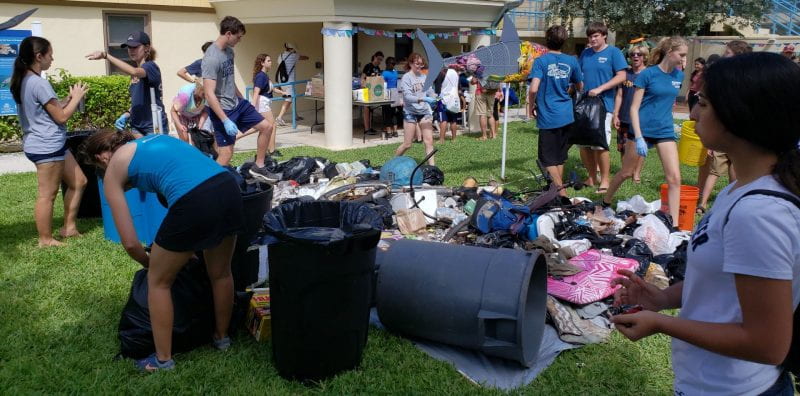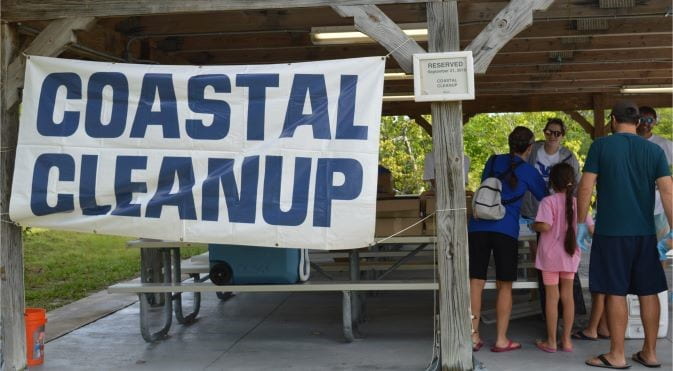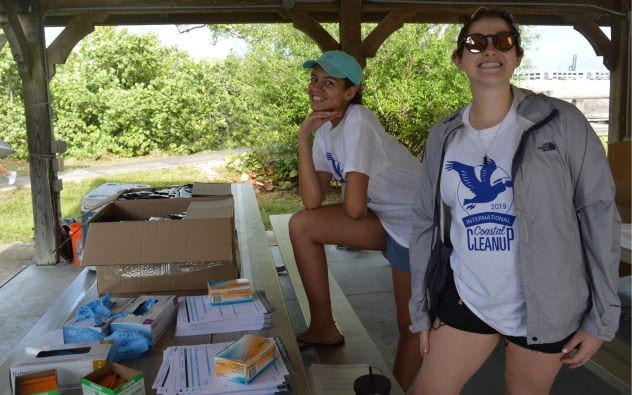
There’s no easy way to say it – the world’s coral reefs are in danger. Researchers from around the world, including world-renowned experts at Nova Southeastern University (NSU) Halmos College of Natural Sciences and Oceanography, have been studying corals to determine not only what is killing them but what can be done to protect and save them.
To that end, from 1-5 p.m. Monday, November 18, NSU is hosting a series of talks and a panel discussion titled, “Coral Crisis: Issues and Response.” This event will be held at NSU’s Ocean Campus, 8000 N. Ocean Dr., (in NSU’s Guy Harvey Oceanographic Center building) within the Mizell-Johnson State Park (at the entry to Port Everglades.) It will also be livestreamed as a webinar, where external participants can submit their question to the panel.
The world-renowned speakers include:
Rear Admiral Tim Gallaudet, Ph.D., U.S. Navy (ret) is Assistant Secretary of Commerce for Oceans and Atmosphere/Deputy Administrator for the National Oceanic and Atmospheric Administration (NOAA). He was previously a rear admiral in the U.S. Navy, Oceanographer of the Navy, and Commander of the Navy Meteorology and Oceanography Command. He has experience in weather and ocean forecasting, hydrographic surveying, policy and planning on fisheries, national security impacts of climate change, and developing the Navy’s information technology, cyber security and intelligence. NOAA is the lead federal agency for coral reefs.
Terry Hughes, Ph.D, has provided leadership in responding to global coral bleaching events caused by climate change and developed practical solutions that improve the management and governance of marine environments. The international science journal, Nature, has dubbed him “Reef Sentinel” for the global role he plays in applying multi-disciplinary science to securing reef sustainability. Hughes is an Australian Research Council Laureate Fellow and Director of the ARC Centre of Excellence for Coral Reef Studies.
Bernhard Riegl, Ph.D., professor and Chair of NSU’s Halmos College Department of Marine and Environmental Science, is a global expert on effects to the changing state of coral reefs. He will speak about the state of reefs worldwide from our academic perspective and with focus on local and regional situations.
Stephen O’Brien, Ph.D., is a world leading molecular biologist, population geneticist, genetic epidemiologist and dedicated conservationist who uses molecular genetics and bioinformatics tools to help protect endangered species and to resolve genetic determinants of devastating complex diseases such as HIV-AIDS and cancers. O’Brien is professor and research director at NSU where he applies his experience to genome bioinformatics of marine vertebrate and invertebrate species in relation to ocean conservation with respect to reefs. He is an elected member of the U.S. National Academy of Science.
Jennifer Koss is director of NOAA’s Coral Reef Conservation Program, which is involved with providing knowledge, information, and management activities. She manages day-to-day operations, coral conservation policy development, program implementation, budget development, and personnel, as well as domestic and international partnership building and program development. She will speak on specific NOAA U.S. coral reef initiatives.
Joanna Walczak is the Southeast Regional Administrator of the Florida Department of Environmental Protection (DEP). She oversees multiple programs in the department’s Office of Resilience and Coastal Protection’s Southeast Region – Biscayne Bay Aquatic Preserves, Coupon Bight Aquatic Preserve, Florida’s Coral Reef Conservation Program, Lignumvitae Aquatic Preserve, and is the state co-manager of the Florida Keys National Marine Sanctuary. She is the point of contact for the State of Florida on the U.S. Coral Reef Task Force and U.S. All Islands Coral Reef Committee. She will speak on Florida-specific coral reef initiatives.
For people who cannot go to the Oceanographic Campus, or cannot stream it, Halmos College is hosting a viewing event on the Fort Lauderdale/Davie Campus in DeSantis Room: 1133. Questions maybe emailed to ocadmissions@nova.edu.
Streaming link: https://sharkmedia.nova.edu/media/NSU+Live+Events/1_w0dvjqjp/35886881
The health of the oceans depends directly on the health of the coral reefs – as does the health of many countries economies. For more information:cnso.nova.edu/coralcrisis


























